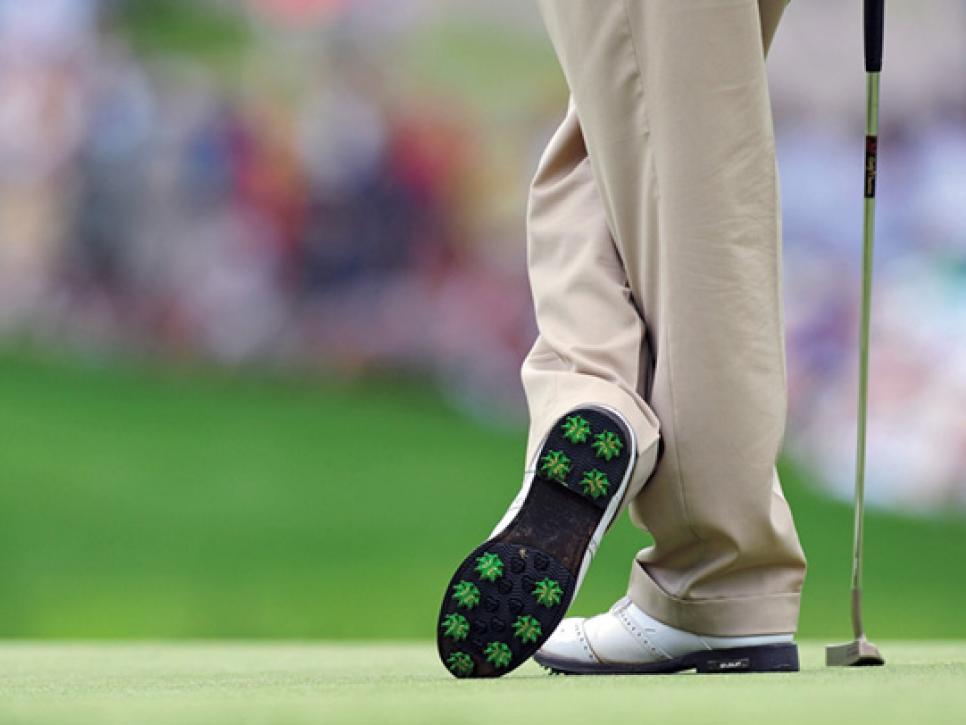News
The Undercover Tour Pro

"In a game of ethics, here's a rule that's broken all the time, and on purpose."
I just finished a round that took 5:05. Disgraceful. Our threesome was the fourth group out and took just over two hours on the front nine, but then we hit traffic. Three groups were backed up on the 10th tee. When we're playing 156 guys, we have no choice but to start off both sides, especially in the fall when dusk sets early, and it gets bad.
It's tournament golf. You look every second of five minutes for a lost ball, you wait for an official to bless every free drop, and you mark and clean every 2½-footer because the greens are rolling 12 and you don't want a comebacker twice as long.
The difference is, when something happens, fast players will play fast to close a gap. Slow players can't—or won't.
Everyone knows who they are. Guys will say stuff at the range or at lunch. I've confronted slow players before. I've said, "Hey, man, when do you think about picking it up?"
"Not until I get put on the clock," is the consensus answer.
Padraig Harrington is a slow player, but he's won three more majors than me. Ben Crane is slow, but he knows it and walks fast. Same with Luke Guthrie. Kevin Na has gotten a lot quicker to pull the trigger. If a guy wants more time to read a putt or has a mental issue, that's cool. What bothers me are slow players who think they're medium-paced and aren't ready to hit when it's their turn. These guys are cheaters.
Ours is an easy system to game. Basically, when a group arrives to a tee box, a green or a collection of drives with none in serious trouble, the first player has a minute to hit, and the next players each have 40 seconds. We don't have officials with every group, so you're usually closely monitored only if you get out of position or are one of the first groups out. Slow players have a lot of room to hide in a big tee sheet. Some slow players will have a caddie arrive to their ball first and figure the yardages because the official can't start timing until the player gets there. In a game driven by ethics and self-refereeing, here's a rule that's broken all the time, and on purpose. I don't know what else to call that but cheating.
The tour used to shame snails by pairing them with players below their status category, making it obvious, but now I have no idea how many fines the tour hands out. I'd imagine a handful each year. I know if you get put on the clock 10 times in a season, it's a $20,000 fine. Two "bad times" in a season is five grand. Two bad times in a round is five grand and a one-stroke penalty, but except for amateur Guan Tianlang at the 2013 Masters, no one has been penalized a stroke in a regular tour event since Glen (All) Day in 1995. Let's face it, dollars like these won't get the attention of a slow player grinding out cuts.
There's no obvious solution. Play is always faster at invitational events like Colonial and Memorial, where the field sizes are around 120, but the tour is facing a lot of pressure from the Web.com graduates who don't get enough starts in the new system. It's hard ensuring tomorrow's stars have enough opportunities while simultaneously weeding out players who are just hanging on. That's why we start 156 guys.
Course setup is another factor. Soft greens with accessible pins make birdies easier and play faster, but there's a line before the entertainment product is dulled. The Masters has the smallest field, at around 90 guys, but it's usually the slowest golf all year because those greens take time to navigate. It's also the most watched tournament.
I think the PGA Tour should stop giving warnings. An NFL lineman who holds knows he's going to get caught now and again. A slow golfer should feel the same ever-present risk. He should feel like officials are watching at any moment.
Lucas Glover might be the fastest player I know, and Pat Perez is a close second. Problem is, there's no benefit to being a fast player. Sometimes I walk slower to my ball to prevent impatience when I get there.
Sport psychologists are partly to blame. They've convinced a lot of young kids that to be great, you have to complete a whole pre-shot routine and visualize each shot. I don't think that's true. Taking a long time to hit a golf ball can help. But it can also hurt.